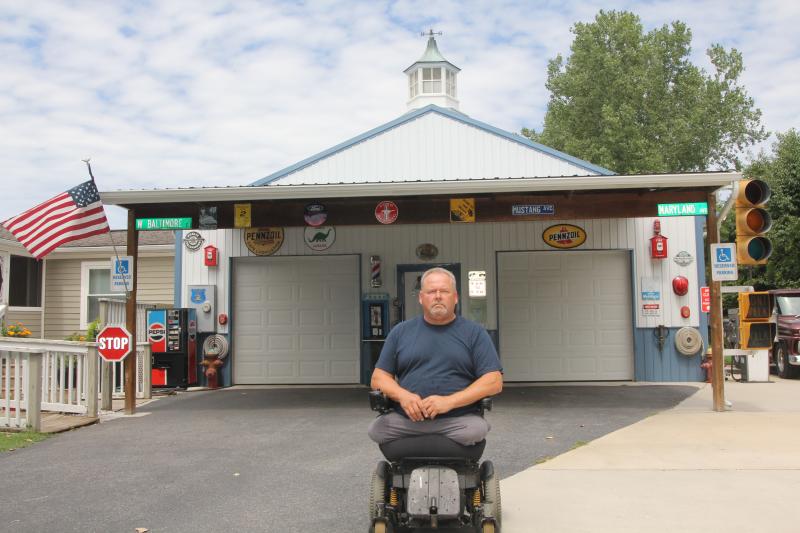Judge denies claims against Harbeson garage
A Chancery Court judge has denied all claims against a Harbeson man whose neighbors say he is operating an illegal car repair shop.
In an opinion released Nov. 4, Chancery Court Judge Sam Glasscock addressed what he referred to as “officious intermeddling” by neighbors of Charles Williams who filed suit asking that Williams’ garage be torn down because of violations with county and building codes.
In the judge’s latest opinion, he denied plaintiff’s request to tear down the garage and affirmed, as the judge did in a previous opinion, that Williams can use his garage for his auto repair hobby. The judge also said Williams is allowed to have ornamental signs on his property and denied the request by plaintiffs Robert Walker Jr., Margaret Foulke and John and Carol Kane for payment of their legal fees associated with the lawsuit.
The three sued Williams in 2014 saying Williams was operating a car repair shop out of his home, causing noise, heavy traffic and unpleasant odors that affected their way of life. They contended the garage was illegal and larger than Sussex County code allowed – violation of building codes, zoning codes and land-use policy.
Judge Glasscock said Delaware state code gives Sussex County authority on zoning and the county, in turn, hires a building inspector to determine whether building codes have been enforced. While acknowledging that the ceiling trusses or floor slope of Williams garage may not be up to code, Glasscock said the plaintiffs failed to prove how the garage has injured them. He also said state statute leaves enforcement of building codes to a county director of assessment. “I conclude no statutory standing exists with respect to enforcement of the building code as adopted by Sussex County,” he wrote. “To find, as the plaintiffs argue, that all property owners in Sussex County have standing to enforce the building code would, I fear, result in inefficient and pernicious litigation.”
Despite years of complaints by the plaintiffs resulting in hearings and other county action, county officials have repeatedly said Williams is allowed to own a garage and fix cars with his friends.
Under the assumption that any property owner can sue another for code violations, the judge said, a resident in Slaughter Beach would be able to sue someone in Delmar for owning a barn with improper circuit breakers. “Such a reading would allow precisely the kind of officious intermeddling, nuisance and strike suits that the standing requirement is intended to prevent,” Glasscock writes.
The judge states that plaintiff accusations of code violations are subordinate to their desire to tear down Williams’s garage.
“In fact, if Williams tomorrow brought the building up to code, the plaintiffs would be entirely unsatisfied; their real complaint is with the use of the shop for auto repair, not the allegedly noncode-compliant slope of its floor,” the judge wrote.
Wiliams said he was thrilled with the judge’s final decision.
“Praise the lord, I’m elated,” he said. “I can breathe deep now.”
In June, Glasscock denied the neighbors’ claim that Williams’ shop is a nuisance and that the noise and smells are excessive. The judge did, however, give Walker more say over the 275-foot easement known as Summer Place Lane, a driveway shared by both Williams and Walker’s rental property. Speed bumps and speed limit signs could be added, Glasscock said, but Williams and Walker must work out the details.
The Cape Gazette was the first to write about the garage dispute and the story quickly went viral, spreading to car enthusiast blogs and eventually to national publications such as Popular Mechanics and the Wall Street Journal.
A gofundme account to help Williams with his legal battle raised more than $57,000.






















































